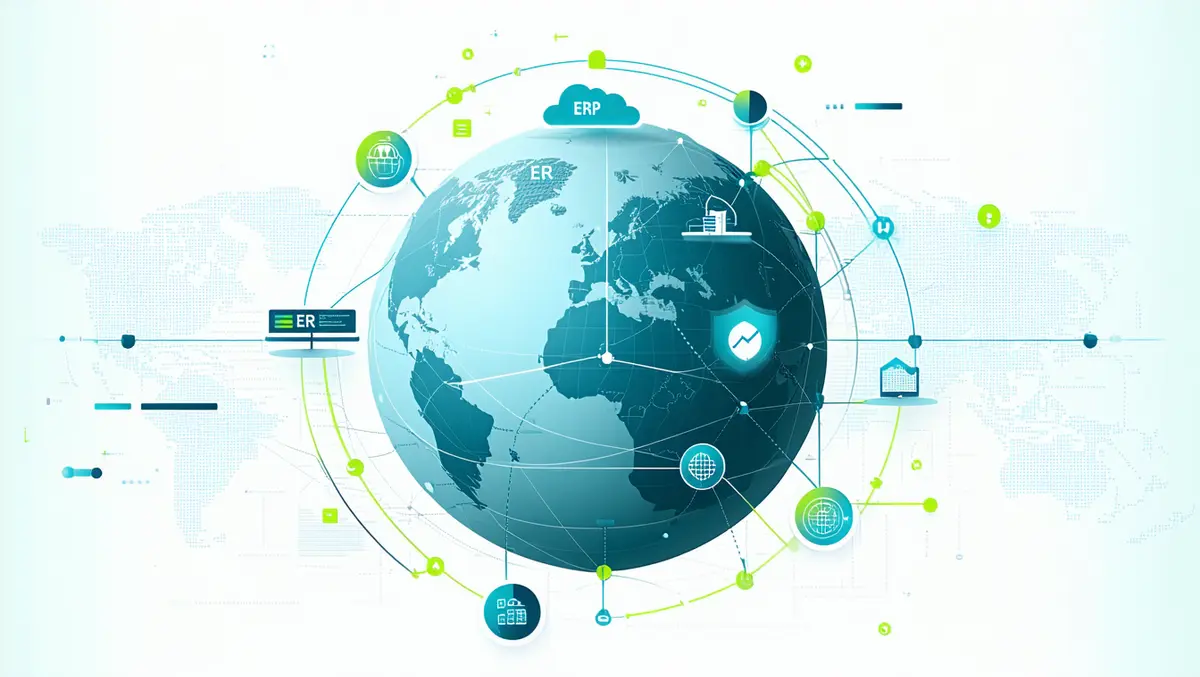
How to crack the compliance code with integrated business suites
Compliance demands constant vigilance as global operations introduce new legal and tax obligations. Yet, many teams still rely on manual processes, disjointed workflows and siloed systems, increasing inefficiencies and the risk of costly errors.
Without a clear, integrated view of compliance-related data, even minor missteps can erode trust and lead to significant penalties.
Cloud ERP systems to cover your compliance bases
For many businesses, the complexities of compliance can be mitigated by leveraging ERP systems. These platforms go beyond managing core business functions by providing a unified, real-time view of operations across the entire organisation. From finance and HR to supply chain and customer relationships - all areas subject to regulatory oversight - an ERP system centralises data and processes. Additional modules can be tailored to meet specific needs, creating a solution that supports both daily operations and long-term compliance goals.
Leading ERP systems take this further by embedding tools designed to simplify compliance. For example, Australian companies must adhere to the Australian Accounting Standards Board (AASB) standards, which ensure consistency in financial reporting. ERP systems facilitate the integration of standards like these directly into workflows, automating tasks like financial reporting and minimising human error. Automated workflows, audit trails and real-time updates provided by cloud ERP solutions further support compliance, helping businesses stay ahead of changing regulations without constant manual intervention.
It's worth noting that while an ERP system will significantly simplify compliance processes, it can't handle everything on its own. It doesn't define your business's regulatory obligations or manage compliance outside its ecosystem. Instead, it provides the tools to embed your policies, workflows, and governance into automated processes.
This means, to effectively enforce compliance, your ERP must be designed and implemented with compliance in mind. For example, you can create custom dashboards to give finance teams real-time visibility into critical metrics. Or introduce robust traceability features so team members can track every component or transaction across the supply chain. In manufacturing, for example, traceability is invaluable for pinpointing issues during a product recall. Similarly, configurable reporting tools streamline audits, producing detailed compliance reports quickly and accurately when regulators come knocking.
How NetSuite ERP is built for compliance
NetSuite stands out as a cloud-based ERP solution designed to simplify compliance. Its built-in capabilities - ranging from automated updates to industry-specific tools - make it an ideal choice for businesses in Australia's highly regulated industries.
Let's take a look at some of the standout features, and what they mean for compliance management.
Automated compliance updates
NetSuite supports a wide range of global accounting standards, including IFRS and local tax regulations, making it easier for businesses to meet their obligations. Meanwhile, the system's ability to deliver continuous updates ensures that organisations stay aligned with evolving requirements, from tax rules and financial reporting standards to industry-specific mandates.
Centralised data for complete transparency
NetSuite's unified platform is designed to bring all business operations - finance, inventory, HR, and beyond - into a single system. This centralisation provides businesses with a single source of truth, breaking down data silos and ensuring consistency across the organisation. With customisable dashboards and real-time reporting, finance teams can easily track compliance metrics and monitor audit trails.
Strengthened risk management and internal controls
NetSuite enhances risk management by offering robust internal control features that safeguard sensitive business data. With role-based permissions, businesses can assign granular access rights, so that only authorised personnel can view or modify critical information - reducing the risk of internal fraud or data breaches. Additionally, the platform's automated audit trails provide a detailed record of all transactions and changes, simplifying both internal audits and external regulatory inspections.
Industry-specific features for highly regulated businesses
Certain high stakes industries face unique compliance challenges, but NetSuite's adaptability empowers businesses to confidently meet their specific regulatory requirements.
In healthcare, NetSuite is third-party audited and HIPAA-attested, offering tools like Compliance 360 to track user interactions with customer records.
In the financial sector, NetSuite supports the enforcement of segregation of duties, a critical control to prevent unauthorised actions within the accounting system. For example, it can require CFO approval for high-stakes transactions or sensitive information transfers, ensuring compliance with internal protocols and industry standards.
Meanwhile, businesses engaged in international trade benefit from features such as multi-currency transaction support and tailored customs documentation, streamlining cross-border operations.
Global reach with localised support
With localisation for over 200 countries, NetSuite addresses region-specific tax codes, legal frameworks and reporting requirements, ensuring compliance no matter where your business operates. Its advanced tax engine automates tax calculations and reporting, simplifying the complexities of Australia's GST system while supporting global tax environments.
Customisation for evolving regulations
NetSuite's flexibility includes configurable workflows so the system can be tailored to unique compliance needs through the creation of processes and scripts that align with specific regulations. This can even involve integration with third-party compliance tools and regulatory bodies, streamlining data sharing and reporting.
Work faster and smarter
By automating compliance-related tasks, NetSuite reduces manual work and minimises human error. Proactive alerts ensure teams are notified of deadlines or potential issues, enabling them to address compliance risks before they escalate.
Ready to simplify compliance? Learn how NetSuite helps: